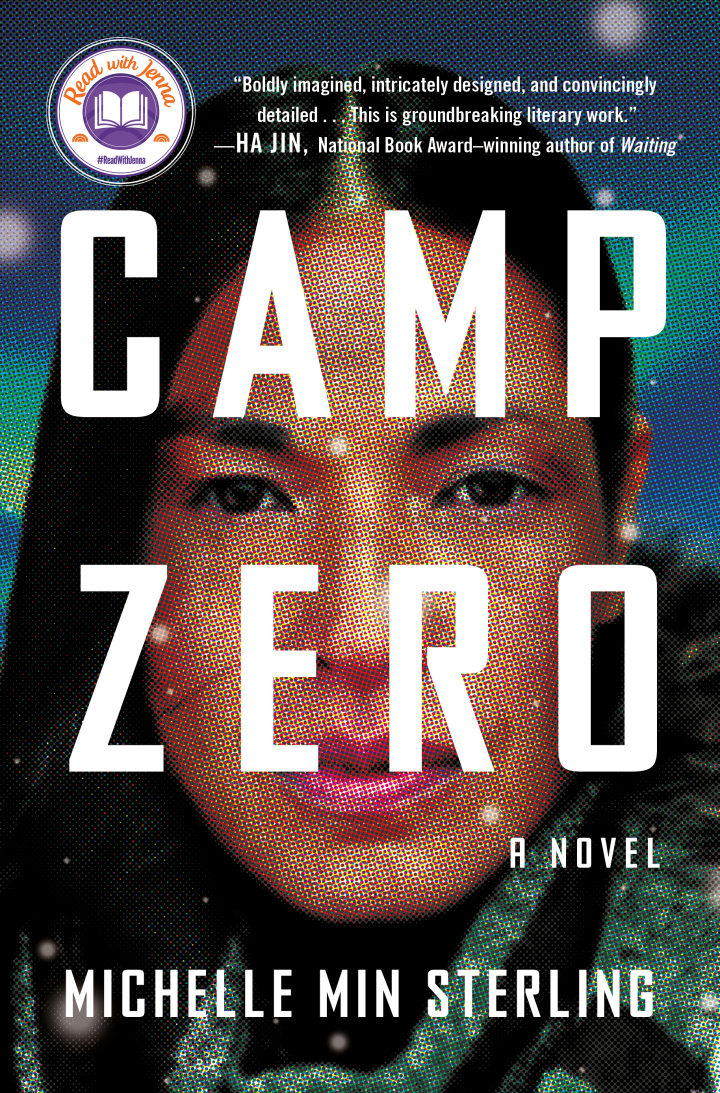Strap in: Jenna Bush Hager says her April 2023 Read With Jenna pick is going to take you on a wild ride. Of the literary variety, that is.
“It is action-packed,” Jenna tells TODAY of the novel. “I read it so fast. My sister did, too. You are going to love it.”
“Camp Zero” by Michelle Min Sterling is a multi-layered book set in the near, but very different, future. The book is set in northern Canada in a warming world in which feeling cold is a rare and precious delight.
“You’ve never been anywhere like the world Michelle created,” she says. “That’s one of the things I love about reading. It’ll take you to places you’ve never traveled.”
"Camp Zero" by Michelle Min Sterling
For Jenna, there’s a hopeful ray in this dark speculative fiction world: The women. “They work together to do the most amazing things. It’s about how women can come together to change the world … which I believe in,” she says.
Jenna also touches on how the book has multiple perspectives, which eventually weave together in ways that surprised her. “The ending of this book is incredible,” she says.
“Camp Zero,” Sterling’s debut, is set across three different storylines. There’s a woman code-named Rose who is sent to infiltrate the camp in Canada to seduce and disrupt the architect of a futuristic society. There’s also an all-woman survivalist camp, and a young man trying to escape his family’s last name.
Speaking to TODAY.com, Sterling says she didn’t know how the many strands would fit together when she first began writing “Camp Zero.”
“I began with setting and a premise. The biggest challenge of writing the book was definitely thinking about bringing those three plot strands together, and making them come together in a way that was satisfying, hopefully, for the reader,” she says.
Sterling says she was surprised by the ending, too. She wrote forward under the assumption that “all three would converge,” she says.
The idea for the book came to Sterling during a cross country train ride in Canada. She stopped in Edmonton in northern Alberta to visit a relative who was working in the oil industry.
“I was thinking about what this place might look like in the future when this oil extraction no longer exists. Would there be a future where workers would go there for a different reason?” she says. Indeed, the first chapter of the novel explores just that, imagining workers arriving at a camp in Canada to explore cold “as a commodity.”
“Camp Zero” is an installation in the “cli-fi,” or climate fiction, genre. “The genre allows the reader to have an empathetic relationship to the climate crisis we’re in right now. It provides a way for readers to see themselves to a certain extent and grapple with themselves in a way that feels visceral and intimate.”
She says writing the book was a way for her to think through her own questions for the future and the present. “The book is about the challenges we face today, in terms of our relationships to the environment, income inequality, collective responsibility and individual desires,” she says.
Despite incorporating grim issues, Sterling wrote the book with optimism in mind. “The characters are hoping for a better future and pragmatically seeing the incredible challenge they have ahead of us. They need collective solidarity to make those changes,” she says.

